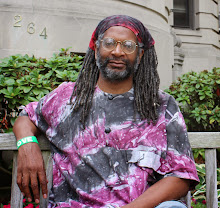
""Masai: The Rain Warriors" is a beautifully, sensitively shot and rendered film that seems to have its feet firmly and fluidly grounded in the warm red earth of Kenya. All too often, when a film produced in Europe or North America about Africa or indigenous people reveals itself on screen, it exposes so much of the patronizing nature of the dominant political and cultural colonial discourse, telling more a story about the teller than the subject. The lens of "Masai" at once becomes the viewpoint of the Masai themselves, showing their challenging and tender, intimate indigenous life in the context of being the subject of deep consideration and not the object of brash, patronizing scrutiny for the sake of assuaging neo-colonial guilt (e.g., "Dances with Wolves") or for mere financial gain (e.g., "Avatar").
This look into the life of the Masai is refreshing, empowering and informative, enabling the viewer to genuinely feel as if they have "been there" for a time and had a common experience, if only through a cinematic window. There is much of the indigenous experience of life that is illuminated AND validated here, not held up for narrative and audience ridicule in conflicting cultural statements (done very well in "Avatar").

The story is simple, compelling, ultimately human and spiritually-inspired. The journey of the young warriors at the behest of their wise elders is a powerful connection to the legacy of respect for those who have earned life's tenure on this earth. It is immediately heart-warming to see youth not only carry their traditional culture with genuine and functional passion, but to also acknowledge deeply their elders AND their youngers, seen so beautifully in a ritual scene before they head out into the savannah to hunt down Vitchua, the uber-lion that embodies their supreme god. The path of these warriors is marked well by a masculine sensitivity unconventional only to modern colonial (this includes the USAmerica!) and colonized mindsets.

In addition to this newly empowering, though antique, way of being and becoming men, the positive story of womanhood and femininity is also embedded in the dreamy awakening of one of the lead warriors' into the troupe's desert salvation. The confirmation of the wise woman healer and her importance to the life of not only the village, but our world, enlivening the divine feminine in real-time, is very entrenched in this film.
"Masai" is an important cultural statement. Though we are still in need of validating and distributing widely the stories of indigeny by indigenous people in a modern world that does not yet remember itself and see itself as the progeny OF indigeny, "Masai" is a tactile and real expression of a part of the indigenous experience that is not only enlightening, but entertaining and emotionally moving. This is a good story told well about a subject often not represented with compassion and clarity.
Expect to have a cinematic experience that deepens understanding of the human experience. We need more of that."


1 comment:
* Re: "conflicting cultural statements" in "Avatar" movie - I am referring to lines delivered by Sigourney Weaver's scientific missionary character that in some instances seem to care about the indigenous inhabitants of Pandora, but in other instances degraded by saying that her work is not about some "pagan voodoo". This kind of dichotomy is damaging to clear understanding and the necessary enlightenment that is called for by modern culture.
Post a Comment